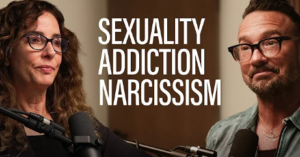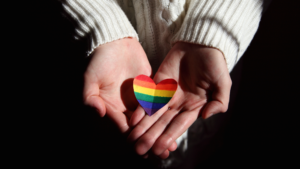“Trust thyself: every heart vibrates to that iron string.”
~ Ralph Waldo Emerson
The worst betrayal is self-betrayal. We often falsely focus blame on another, for to grasp how we let ourselves down can be devastating. Seriously, we can’t trust that we’ll be in the same mood or have the same intention from one moment to the next: A promise we make in one mind state might be upended with the slightest shift in circumstance. How often do we wake up ready to conquer the day, whether by action or interaction, and an hour later, can’t even remember that feeling, much less act on it? Let’s be honest. If our thoughts and emotions were personified as a partner, what a shifty, exasperating relationship that would be!
It’s said the mind is like a bad neighborhood at night–you don’t want to go there alone. Our head sometimes takes us to unhappy or unkind places because of unprocessed trauma. Distorted, uncontrolled thoughts can even lead to addiction, a form of retraumatization. Habituated early to self-abandonment, addicts in recovery always come to realize that they’ve never been present for their own feelings and needs. Partners of addicts often feel not only that they can’t trust the partner to avoid traumatic scenarios, they can’t even trust themselves.
How can we establish trust in ourselves? By showing up for ourselves, being accountable to trusted others, sticking to a self-defined regimen of integrity, following through with our words, and loving ourselves when we fail. It’s crucial to practice self-empathy, for trust can’t be willed into existence. That didn’t work when our caregivers tried to impose their will on us, and it won’t work internally, either. Only when we can tap into a place of self-trust, with a reliable process of reparation for inevitable mistakes, can we build trust with another person. Because you can’t give until you’ve got.
Daily Healthy Sex Acts:
- Set special time aside to be present with yourself in order to gain your own trust. See if you can stick to a regular schedule of self-care, such as daily meditation or similar acts of self-love.
- When life doesn’t go as planned, practice self-empathy by soothing yourself with kind words and thoughts. Speak to yourself as you would to a frightened child or pet. Do this aloud, tapping into the healing power of your own loving voice. The gift of self-trust is worth your full attention and practice, regardless of how uncomfortable it feels right now.




